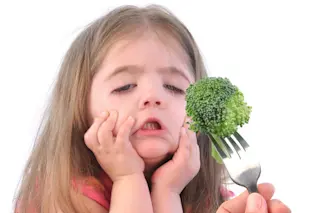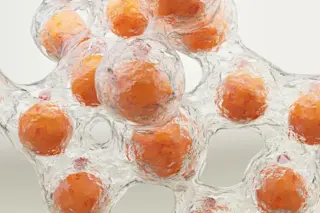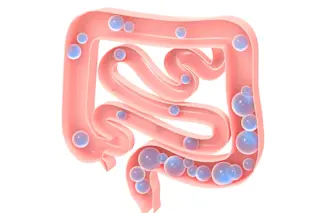Are you a person who just can’t stand broccoli? Well, your revulsion of the sprout-topped vegetable may run deeper than just stubbornness — your food preferences could be written into your genetic code.
Italian researchers studying the genetic basis of food cravings have discovered 17 genes related to liking specific foods including dark chocolate, artichokes, bacon, coffee and of course broccoli. Additionally, in separate studies the team also discovered genes linked with salt perception and metabolizing certain types of food.
Together, the series of studies bolsters a branch of research called nutrigenetics, which focuses on understanding the way our genes affect our choice of foods and our body’s ability to process these foods. Researchers believe the studies could contribute to personalized diets that make healthy foods tastier by catering to people’s preferences.
If the Genes Fit
The research team from the University of Trieste and the Burlo Garofolo Institute for Maternal and Child Health in Italy performed genome-wide association studies (GWAS) to locate the specific genes responsible for certain food preferences. A GWAS identifies genetic variants within snippets of DNA, harvested from blood or cheek swabs, that are linked to certain traits in groups of individuals.
More than 2,300 Italian subjects, and 1,700 from other European countries and Central Asia, participated in the study, and they were asked how much they liked 42 different foods.
Seventeen genes showed significant associations with food preferences. The researchers found genes that reflected people’s affinity for:
Artichokes (three genes)
Bacon
Broccoli (two genes)
Coffee
Chicory
Dark Chocolate
Blue Cheese
Ice Cream
Liver
Oil or Butter on Bread
Orange Juice
Plain Yogurt
White Wine
Mushrooms
Interestingly, none of these 17 genes encoded a taste or smell receptor — the obvious candidates for influencing our appetites. Thus, researchers don’t yet know why variants of these genes would impact our favorite foods.
Customized Diets
In a second study, more than 900 healthy adults participated in a similar test to find the genetic link to enjoying the flavor of salt. Researchers discovered a specific gene encouraging people to consume more salt, which in turn could represent a risk factor for development of hypertension and salt intake.
Nicola Piratsu, the studies’ lead author, told New Scientist that their work should lead to the design of meals, or cooking methods, that are customized for people’s genetic profiles. If people don’t like the taste of spinach, it could be prepared in a different way or ingredients could be added to mask the flavor.
Photo by Angela Waye/Shutterstock














